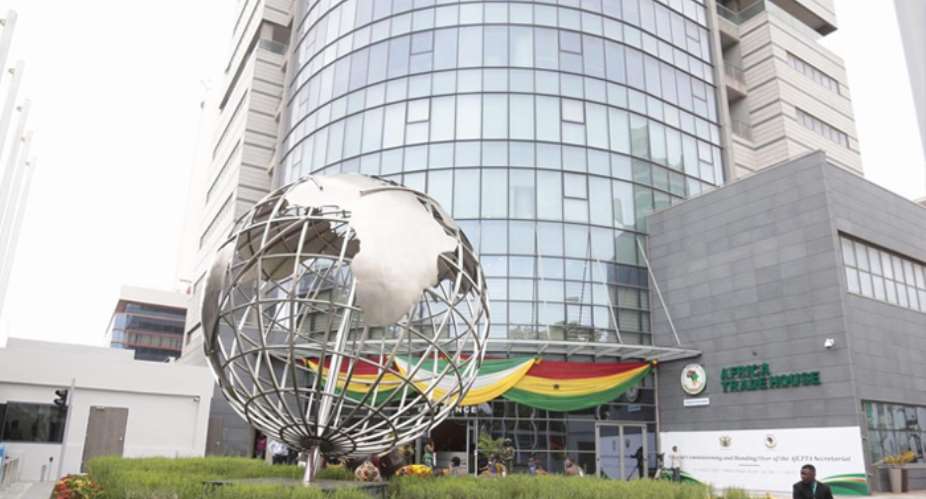A look at the world countries battling security threats showed that half of the top fifty on the longlist are located in Africa. Reports also indicate that violent extremism is the primary cause of forced displacement in Africa while food insecurity has increased poverty rates and inflation, making it difficult for citizens to afford basic needs. To overturn the multidimensional challenges facing Africa, there is a need to establish an Africa-centred supply chain and ratify a security pact using the African Continental Free Trade Area (AfCFTA) framework.
Unless African nations start producing and exporting more products, food prices will continue to rise and have more ripple effects on general inflation rates. The implementation of the AfCFTA can solve Africa’s trade deficit including the current physical and economic insecurities. According to the World Bank estimate, if AfCFTA is appropriately implemented, it will lift 30 million Africans out of extreme poverty and 68 million from moderate poverty by 2035.
Intra-African trade can reduce food inflation in Africa within a short period of time when there is continuous and uninterrupted trade in agricultural produce among African nations using existing transport networks but governed by AfCFTA rules. The AfCFTA pilot programme shows that it is no longer business as usual for dumping and smuggling. As it is, African countries must uphold free trade policies, remove tariffs and streamline customs clearance. Intra-African trade in mainly agricultural produce will set the pace for the AfCFTA as it did for the European Union (EU).
An IMF report revealed that only 15 per cent of food imports into the continent are from neighbouring countries. Hence, establishing an African-centred supply chain network with the AfCFTA would further tackle food and economic insecurity. To achieve this, a long term policy plan that prioritises local food cultivation must be initiated. For instance, with the AfCFTA in place, fleeing farmers can become new labour inputs in refugee countries to boost agricultural production. Then, AfCFTA's supply chain networks will facilitate the transportation and distribution of these agricultural products for immediate consumption or as raw materials for Africa’s manufacturing industry.
AfCFTA's implementation would eventually result in African governments unloading resources to address infrastructure deficiencies including repairing roads and building new ones. This will further boost intra-African trade which is partly affected by the poor quality of roads and weak transport infrastructure. More intra-African trade will demystify the fear African nations have for each other, improve market knowledge and generate trust among them to tackle insecurities that affect them collectively.
The weakened economy in Africa has made it easier for violent extremists and conflict to take hold, as there are more people who are unemployed and impoverished. However, constructing a strong trade and transportation network through the AfCFTA can be a foundation for African security. Furthermore, the economic union can ratify a security pact like the EU but will focus on intel sharing, counter-terrorism training among participating members and strong protection of AfCFTA trade routes.
It is long overdue for African countries to come together and create homegrown solutions that tackle its numerous issues and challenges. This can start with continental trade as a contemporary foundation for sustainable development in Africa. Although peace facilities trade, when carefully managed, trade can facilitate peace.
Olakunle Mohammed is a writing fellow at the African Liberty.





 Ghana will make maiden voyage into space should Bawumia become President — Chair...
Ghana will make maiden voyage into space should Bawumia become President — Chair...
 Train crash: Despite the sabotage, we shall not be deterred and will persevere —...
Train crash: Despite the sabotage, we shall not be deterred and will persevere —...
 Tema-Mpakadan railway project a perversion of the original viable concept design...
Tema-Mpakadan railway project a perversion of the original viable concept design...
 Train crash: Elsewhere, everyone involved in the test will either be fired or re...
Train crash: Elsewhere, everyone involved in the test will either be fired or re...
 Ghana, other election bound-countries must build fiscal buffers – IMF admonishes
Ghana, other election bound-countries must build fiscal buffers – IMF admonishes
 Parliament reconvenes late May, denies Speaker Bagbin delaying recall over NDC t...
Parliament reconvenes late May, denies Speaker Bagbin delaying recall over NDC t...
 $100m needed to revitalise Ghana's poultry sector — GNAPF
$100m needed to revitalise Ghana's poultry sector — GNAPF
 Driver arrested for causing train collision on Tema-Mpakadan Railway Line
Driver arrested for causing train collision on Tema-Mpakadan Railway Line
 Police grab trucker for Tema-Mpakadan rail accident
Police grab trucker for Tema-Mpakadan rail accident
 Gov't plans to revise traditional customs following Gborbu child marriage
Gov't plans to revise traditional customs following Gborbu child marriage
